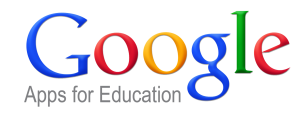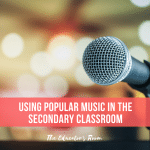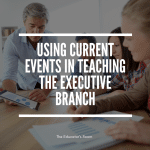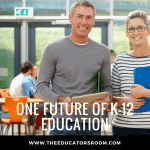 Technology can greatly enhance instruction by encouraging meaningful collaboration, creation, and developing 21st-century skills.
Technology can greatly enhance instruction by encouraging meaningful collaboration, creation, and developing 21st-century skills.
This was the main message of last weekend’s conference in Roseville, Calif. (near Sacramento). Known as a “GAFE” Summit (Google Apps for Education), this two-day event provided inspiration and technical know-how for integrating the use of Chromebooks and other Google technologies in the classroom. See the conference site at http://ca.gafesummit.com/roseville
The event comprised of various whole-group activities, interspersed with smaller tool-based sessions. The whole-group components seemed to serve as the motivation—why are we even here, talking about technology?—while the small sessions provided instruction on specific technologies.
On the first day, Dan Russell (Ph.D. Computer Science) gave an inspiring keynote on what literacy means in today’s technologically-advanced world, titled Powerful Literacies: Why and How Vasty Knowledge Matters More Than Ever. “A literate person,” Russell said, “knows the tools of creation.” It is not enough to know how to read and write, but also have the know-how to use, discover, and interact with information. What are the tools available, how can we use them in unexpected ways, and how do we anticipate they will change?
Referring to the “weird word” in his speech’s title, Russell described “vasty” as the quantity of knowledge that is now available to us, often at our fingertips. Every minute, for example, over 100 hours’ worth of video is uploaded to YouTube. To really make the most of this awesomeness, then, Russell advocated for us to inculcate a “research attitude” in our students – inspire and nourish curiosity such that they remain lifelong learners, information seekers, and creators.
Inspired by these words, conference participants then moved into smaller sessions. There were a total of six smaller sessions throughout the summit, three per day. Participants chose which sessions to attend, and a variety of tools and skill levels were represented (although I made the mistake of attending a few sessions that were either too beginner or too advanced for my skill level!).
As this was a Google-based event, most these sessions were aimed at utilizing Google tools: I attended one each on Chromebook usage, Google Forms, and Chrome browser extensions. Among my favorite was a session led by Dave Childers (@davechilders) on Youtube as a learning tool: both to aid in instruction (creating playlists, subscribing to relevant channels, and youtube.com/education), and in involving the students themselves in video creation (YouTube has a built-in video-editing tool – what?).
Other session options involved specific teaching strategies. On the second day, I attended two sessions led by Kate Petty (@techclassroom) on inquiry-based learning and 20-percent time. Both these strategies teach students how to ask questions and find answers, and encourage curiosity (sounds like Russell’s “research attitude”!). 20-percent time is similar to the premise of what Google employees enjoy, where students are given 20 percent of their classroom time to work on a sustained project that they chose and about which they are passionate. This definitely taps into students’ interests, grants them autonomy, and empowers them as active participants in their learning. The culmination of the time, then, is a service project, or starting a business, or political action, etc.
I am so happy I spent my weekend at this conference. I gained so much, both in terms of strategies and in terms of motivation. I feel equipped to more meaningfully integrate technology in my classroom – but as a tool toward instruction, and not as a gimmick. I feel like my role as a teacher is fundamentally changing: as I tweeted during the conference, “This reaffirms my thought that ed is now about teaching how to find knowledge, rather than bestowing knowledge on to students.”
Now I’m going out there and empowering my students to feel the same.
GAFE Summits, supported by EdTech Team, happen throughout the country. Find a full schedule of upcoming GAFE events at http://www.gafesummit.com/






Leave a comment